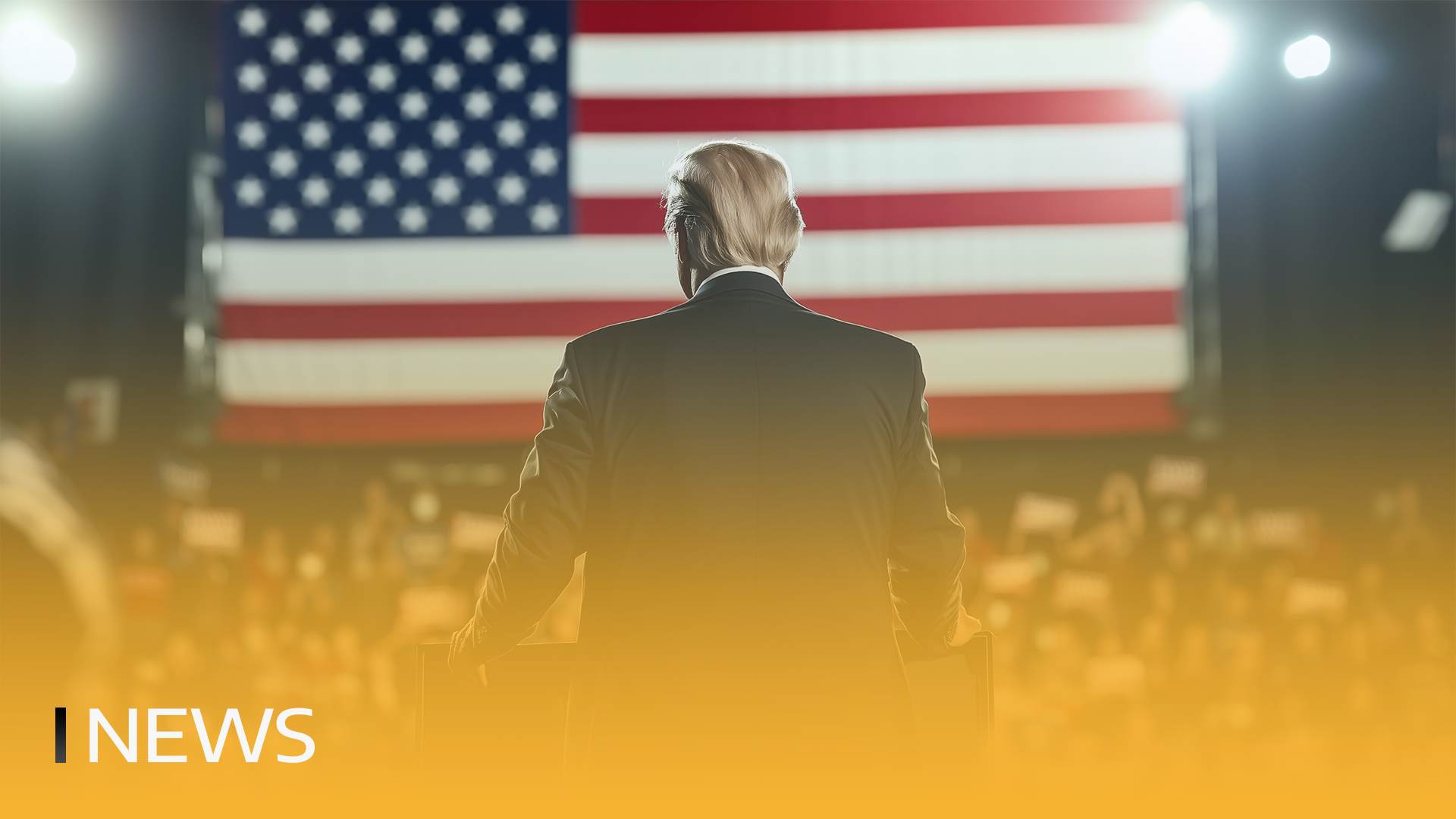Donald Trump Appoints Paul Atkins as New SEC Chair
18 Dec, 2024 ● Những người Crypto

President-elect Donald Trump has selected pro-crypto businessman and former Securities and Exchange Commissioner Paul Atkins as the next chair of the regulatory agency under his administration, fulfilling his promise to replace current chair Gary Gensler and delighting the crypto industry.
Here’s what is known about Atkins and the potential changes he could bring to the crypto industry if confirmed by Congress, as expected, in 2025.
Atkins served as a Republican SEC commissioner from July 2002 to August 2008, having been appointed under President George W. Bush.
Back then, he was already known for supporting innovation and investment while opposing excessive regulation:
“[The SEC] must not price those very investors out of our markets through burdensome regulations or eat up the fruits of their investments through nonsensical mandates,” Atkins said in a 2007 speech to the Corporate Directors Forum.
According to U.S. legal firm Anderson PC, Atkins emphasized “proportionality” in enforcement actions, discouraging massive fines for corporations based on individual wrongdoing and instead focusing on complex, nuanced cases.
“Under his leadership, the SEC may move away from aggressive tactics that prioritize headline-grabbing penalties over substantive outcomes,” wrote Anderson lawyers.
Speaking on the Unchained podcast this week, Digital Chamber President Cody Carbone said one of Atkins’ key strengths is his familiarity with the current SEC staff, including Republican Commissioners Hester “Crypto Mom” Peirce and Mark Uyeda.
Both Peirce and Uyeda worked as staffers for Atkins during his six-year tenure at the agency.
“When we look at how the commission is going to work moving forward, they have familiarity. They’ve already rolled up their sleeves and been in the war together,” said Carbone.
After leaving the SEC, Atkins founded Patomak Global Partners in 2009, a financial consultancy firm specializing in regulatory advice, risk compliance services, and litigation support.
Notably, Patomak signed FTX as a client in January 2022, just 10 months before the exchange collapsed.
Speaking on a podcast in 2023, Atkins said the FTX crisis became an “international debacle” because the U.S. lacked clear rules to accommodate digital assets.
However, he acknowledged that Bankman-Fried’s fraudulent activities were the primary cause of the collapse.
Since 2017, Atkins has served as co-chair of the Token Alliance, a crypto lobbying group under the Chamber of Digital Commerce that aims to introduce clear regulations and promote mainstream adoption of digital assets.
Atkins has been an outspoken supporter of digital assets and innovation, frequently criticizing the Gensler-led SEC’s “regulation-by-enforcement” approach to the crypto industry.
In 2019, Atkins testified before Congress, advocating for restructuring the SEC to balance investor protection with reducing regulatory burdens on emerging industries.
Although Trump has nominated Atkins as the next SEC chair, the appointment is not yet finalized.
Congress and the Senate retain the power to reject a Presidential nomination, and Trump’s more controversial picks may face opposition.
Carbone expects Atkins’ nomination to be confirmed by March 2025, depending on how quickly the Senate Banking Committee processes other nominations.
The SEC is overseen by a board of five commissioners. Currently, the board consists of two Republicans — Hester Peirce and Mark Uyeda — and three Democrats: Caroline Crenshaw, Gary Gensler, and Jaime Lizarraga.
However, both Gensler and Lizarraga have announced they will step down in January.
Meanwhile, Crenshaw, a commissioner critical of crypto and opposed to Bitcoin ETFs, has had her renomination vote indefinitely postponed, leaving her role uncertain.
This shift will result in a Republican majority on the SEC under the new administration.
Some have speculated that Trump may even nominate a fourth Republican commissioner to replace Lizarraga, though this remains speculative.
Speaking to Cointelegraph, Charlyn Ho, founder of Rikka Group, said Atkins would undoubtedly drive “a lot of change” in how the crypto industry is regulated but cautioned that it won’t happen overnight.
Ho believes the U.S. is unlikely to follow Europe’s approach of introducing an overarching regulatory regime, like the Markets in Crypto-Assets Regulation (MiCA).
Instead, she expects the Atkins-led SEC to focus on providing direction and eliminating regulatory hurdles:
“I would hazard a guess that Trump and Atkins are probably opposed to creating new regulations, but rather increasing the clarity as to where the crypto industry can operate.”
At the same time, several crypto-related bills, such as stablecoin legislation and FIT 21 — a framework for crypto regulation that has already passed the House of Representatives — are up for consideration.
Regardless, Atkins is unlikely to replicate Gensler’s approach, which has been widely criticized for being overly aggressive and routinely overstepping the SEC’s congressional mandate.
“The common theme in lawsuits like Coinbase and Ripple is that the SEC is overstepping its bounds,” she said.
“Technically, Congress is supposed to pass laws. Those laws delegate the authority to executive agencies like the SEC to interpret, but they are only supposed to interpret within the parameters that were delegated,” Ho said.
During the Free The People podcast on Feb. 23, 2023, Atkins argued that the SEC’s combative stance had stifled the growth of the crypto industry in the U.S.
“If the agency had been more accommodating and would deal straightforwardly with these various firms, I think it would be a lot better to have things happen here in the United States rather than outside,” he said, citing Binance’s $4.3 billion fine as an example of why many crypto firms prefer to operate abroad.
On the same podcast, Atkins expressed support for Commissioner Peirce’s Token Safe Harbor Act, which was reintroduced in 2021.
The bill would grant crypto developers a grace period before they are required to register with the SEC.
While Atkins is clearly pro-crypto, Ho warned that expectations for a quick overhaul of SEC rules might be unrealistic.
“There’s still a precedent set by Gensler for him to follow, and just because a new commissioner is named, it doesn’t mean all the legal work and precedent that has come out previously is just gone,” Ho said.
Referring to ongoing lawsuits involving the SEC and companies like Kraken, Coinbase, and Ripple, Ho noted that Atkins cannot simply abandon the agency’s existing legal positions:
“If Atkins wants to change the SEC’s position, he wouldn’t just be able to declare it as so. They would have to go through the legal process and have some justification in order to alter their claims. If they’re the plaintiff, they could just drop the lawsuit entirely. But if they’re in the middle of a process, then the commissioner doesn’t have unfettered discretion to completely change everything in that process.”
Sources:
https://cointelegraph.com/news/everything-know-pro-crypto-sec-chair-paul-atkins
https://www.sec.gov/news/speech/2007/spch012207psa.htm
https://www.youtube.com/watch?v=ybm3V-BWpRI&themeRefresh=1
https://x.com/HesterPeirce/status/1864428440893735331
https://patomak.com/company/clients-we-serve/
https://www.youtube.com/watch?v=eLNFa14msRc



